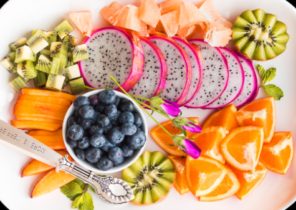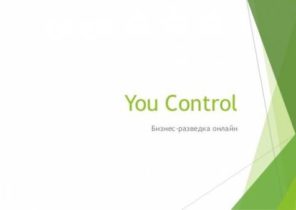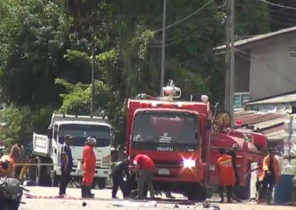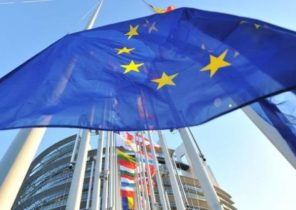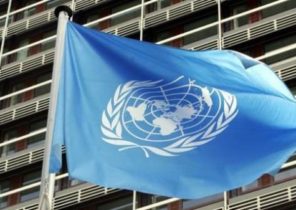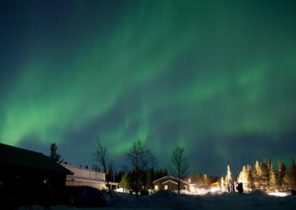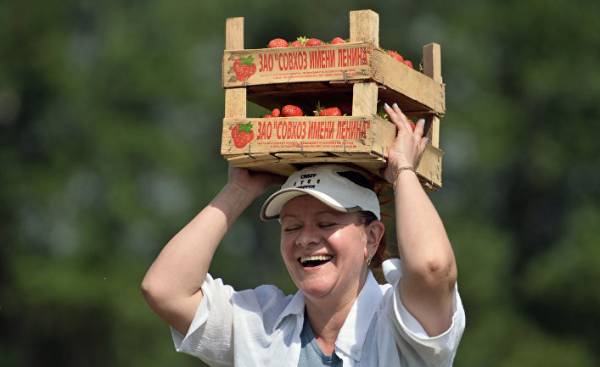
Daniel Tolstoy takes a deep breath, stepping on the soft black earth. After passing the tractor disappears over the hill in a cloud of ravens and gulls, a pale ray of sun falls on the newly dug clods of earth, wind rustles a nearby birch grove.
Probably the same smell breathed great-grandfather Tolstoy count Leo Tolstoy, saw the same scenery, heard the same sounds in their fields more than a century ago. A great writer spent the best part of his life in Yasnaya Polyana, the family estate, located South of Moscow, and also deeply interested in agriculture, and literature.
Leo Tolstoy often interrupted his work on “Anna Karenina” for walks in the fields with the peasants. In later years the writer-aristocrat even dressed like a farmer, wearing the traditional long linen shirt to the Russian peasants. He argued that all must cultivate the land, believed that the ills of society based on serfdom, it is possible to heal, returning to subsistence farming.
Thick left Russia after the 1917 revolution: Daniel Tolstoy, like most of the numerous descendants of his grandfather, a foreigner in all but name. He is a citizen of Sweden, speaks with a clear British accent and words in Russian. But now an economist, educated at the London school of Economics, follows the call of his famous ancestor returning to earth. He develops a farm in Russia.
With the help of Across Invest, based in Stockholm, the main investor of which is the one Swedish family, Tolstoy founded the Foundation “Heritage of L. N. Tolstoy (Tolstoy Heritage). Based in Russia, the company bought 5 800 hectares of fields is 20 times more than normal size of farms in the EU-and medium-size commercial agricultural enterprises in Russia.
Having 123 million hectares of arable land (which is the third scale in the world after India and the United States), Russia has the potential to become an agricultural superpower. The country has 36 400 agricultural enterprises, 174 600 farmers, according to official data on agriculture.
Although other sectors of the economy in the past two years remain in the grip of a recession, agriculture in Russia increased from 4.3 trillion rubles in 2014 to 5.6 trillion last year, some of this growth stimulated Moscow’s embargo on Western food imports, imposed three years ago in response to the EU sanctions and the United States.
“Our country can and should feed itself,” — said in 2014, Prime Minister Dmitry Medvedev. In 2015, President Vladimir Putin went further, saying that Russia could become the largest supplier of “healthy, environmentally friendly, high-quality products.” In his annual address in December 2015 Putin urged to strive for the country to fully to provide food for themselves by 2020.
Tolstoy says that his company will not just farm, and farm with a specific mission. “We’re going to build the first truly organic farm in the country, I want to create a Russian equivalent of Duchy Originals,” he says, referring to the brand of organic products, established in the UK by the Prince of Wales 25 years ago. Later Tolstoy is planning to build a house next to a beautiful lake on a hill surrounded by forest. “Then we’ll be able to spend the weekend here or to stay here longer,” he says.
“Heritage Of L. N. Tolstoy” is just one of the companies aiming to ride the wave exclusively Russian food revolution. In Soviet times, Russian culinary habits were formed from what was available: salad “Olivier”, a popular dish based on the recipe of the French chef of the Imperial era, prepared with carrots instead of eggs, were present in the original recipe. Many years after the collapse of the Soviet Union in the menu of the Moscow restaurants was dominated by dull imitation of sushi and spaghetti Carbonara. However, in the second half of zero, when heated the oil export boom contributed to the formation of the urban middle class who dreamed of the same fresh, healthy foods that he saw everywhere in Europe, this trend began to change.
“In 2011, people became really interested, where are their products. Many of our urban residents have already seen the world. They learned it in Italy, great Britain, Switzerland, where awareness regarding the origin of food consumed has become total mainstream,” says Boris Akimov, founder of LavkaLavka farmers ‘ cooperative.
Akimov, big 39-year-old man with a thick beard, is one of the pioneers of the Russian movement “farm to table”. Ten years ago, being the author of restaurant reviews in the Moscow magazine Afisha, he became interested in cooking. Then he became interested in historical recipes of Russian cuisine and found that many of the ingredients simply were not available. “In Moscow supermarkets were no turnips, was not geese. I started to explore markets across Moscow and finally found the goose, but the seller could not tell me where the goose, what is his age as he was raised,” he recalls.
Then load it reporter’s instinct, and Governors began to explore the supply chain. “I always ran into wholesalers, often products have been imported or supplied from one large meat plant.” Therefore, in 2009, he began to travel throughout Russia and to look for a farm that could directly to sell him meat, vegetables, berries, butter. Having obtained what he needed, he and his friend began to share their farmer contacts with others to reduce the cost of transportation. “It all started with one farm, then they became five, then 12. Now the project LavkaLavka more than 200 farms,” he says. In 2010, the Governors finally retired from journalism and focused on managing the business, which now has your shop, a delivery service of farm products, two restaurants and a farmer’s market.
The menu of the restaurant LavkaLavka there are delicacies, such as king crab with cream cheese and grated apples or barley porridge with duck giblets confit with tarragon, sauce of smoked peppers and black currants. After each of the ingredients are listed the names of farmers, and the company also organizes visits to the farm for patrons wishing to see all the details of the case.
Akimov, appearing in the company’s advertising suckling pig on his hands, says that Russian consumers got a taste of farm products is not only due to the fact that it is eco-friendly and healthy food: “Like city dwellers in the West, they like the sense of authenticity that she gives.”
In 2014, this emerging trend of “farm to table” received an unexpected impetus from macroeconomics and geopolitics. Europe and the United States have imposed sanctions on Russia after the annexation of Crimea. The Russian government responded with measures often derided as a punishment of its own people in August of that year, it banned imports of a wide range of agricultural goods and food products from countries that supported sanctions. This list included the US, EU and some of their allies, they were the main sources of food imports in Russia.
Despite the fact that because of the embargo, inflation rebounded to double digits, in this madness was a particular sense: the government is trying to use political isolation of Russia and confrontation with the West to revive the industry, decaying from the time of the collapse of the Soviet economy in 1991 and the ensuing chaos.
Despite vast arable land, to the imposition of sanctions, Russia imported more than 40% of its food. In Venev, rural areas, where the Fund “Heritage of L. N. Tolstoy”, is currently used only 30% of all agricultural land, according to CEO Invest Across Jens Bruno (Jens Bruno).
After being sanctioned, this has changed. To achieve change, the government launched the program of “import substitution” by subsidizing loans and tax incentives for investment in agriculture and food production, as well as state grants for the acquisition of certain types of agricultural equipment.
Due to the fact that economists in the field of agriculture called “perfect storm”, this program may well be effective. After the global collapse of oil prices, the ruble, the commodity the price of which is closely connected with high degree of Russia’s dependence on commodity exports, fell by almost half against the dollar since the beginning of 2013 to early 2016. In other words, Russian assets fell sharply, and everything that is produced in Russia, for the most part, with ruble-denominated investments, it has become much more competitive.
Large investors feel at ease with the depreciating rubles in the prices of agricultural assets. In 2014, some of the largest Russian conglomerates jumped at the opportunity to accumulate agricultural land and to build or expand their activities in the field of agricultural industry. Among those one of the largest meat processing plants “Cherkizovo”, agricultural company Rusagro, a company owned by the family of the Minister of agriculture of Russia Alexander Tkachev, and the “System” under the control of oligarch Vladimir Yevtushenkov.
“Of course, the embargo plays into our hands, — says Pavel Grudinin, the Director of “Sovkhoz imeni Lenina”, co-operative, formed on the basis of the former state farm near Moscow, producing fruits that are sold in the markets of the capital. The majority of farms in Russia was not a normal investment, because it never was worth the investment, you can always make more money in the oil sector or just using corruption schemes. Now, with the partial exception of the market to international competition, has opened a window of opportunity.”
Andrei Sizov, managing Director of the Moscow consulting company in the field of agriculture, said that from the Russian embargo on imported food products win a cheese and vegetable production.
However, many small farmers do not have these features. Sergey Denisov, whose family grows corn on a small farm in the Novosibirsk region, said that he would like to diversify their production, to open another dairy farm, but he had no chance to get a loan to buy cattle and the necessary equipment.
“In banks, where we sent a request, there is a high percentage threshold explains Denisov, to dairy farm began to generate some serious income, it should take at least three years, so we need several thousand hectares of land to guarantee the loan. Since we don’t, we can only continue to do what we did to sell our best grain for human consumption, and the rest as feed for the chickens. In bad weather the harvest is not born, and I have to moonlight as a taxi driver.”
Governors also says that, despite the fact that government subsidies have helped farmers, many small farmers are unable to access cheap credit to stimulate investment. Most analysts agree with this. “The policy of import substitution had a moderate effect on the Russian agricultural sector”, — said Sizov. The government’s objective, which consists in the fact that the country could feed itself, until now unattainable: according to statistics, last year, Russia imported agricultural and food products by 25 billion dollars by exporting the products for $ 17 billion. “In my opinion, the negative balance will continue to decline in the medium term, but this will happen gradually”, — said Sizov.
In Moscow, however, the sudden ban of European food products has forced the capital’s food lovers to seek out local products. At the end of 2015 LavkaLavka opened a farmers market in a huge shopping center on the outskirts of Moscow, in the spring of this year the company also opened its second restaurant. Moreover, the embargo and political attention to agriculture has attracted owners of small farms and producers of homemade products. “Hundreds of people who have long thought about how to leave the city, return to nature, now ready to make this bold step,” says Akimov.
The biggest support for cheese production. Shop Eataly, the retail network of Italian delicacies, has opened its biggest franchise outside of Rome in may of this year in Moscow without a single head of Italian Parmigiano-Reggiano cheese. The opening, scheduled just at the time of the imposition of sanctions, was delayed for two years and this period of time was necessary in order to build alternative supply chains, not least for locally produced cheeses.
“It’s a real boom,” says Alexander Krupenkov, former programmer, who opened the first specialized cheese shop “Cheese sommelier” in June 2014.
Business Krupickova grew out of his love for the product, which he could not find in Moscow. Coming back from trips to France and Italy, he came to despair when the question about cheese with a nutty flavor was met by uncomprehending looks of the Moscow sellers. “I thought that there must be some niche catering to people like me,” he says.
He started his shop with French and Italian cheeses. “When, just a month after opening the shop, he imposed an embargo, I thought it was the end.”
Krupenkov lasted a year on the brink of survival by selling shares and offering customers a cheese from Switzerland, the only European country that produces high-quality cheese that escaped Moscow’s embargo, when they began to appear new Russian producers. “Cheese production was studied by many people engaged in absolutely other things — lawyers, accountants, doctors, — says Krupenkov. Many of them cooperate with foreigners,” he adds, turning goat’s cheese, which he morning to sample imported French cheese-maker of Moscow region.
Krupicka says that its customers have adapted faster than he would have liked. “Focus on Russian production and the absence of European delicacies became so dominant that people forget the taste of European cheeses, he says. — When we have a new local cheese, it sometimes seems that he is better than the French. But of course, it is not. And probably never will be.”
But business flourishes. Today the “Cheese sommelier” sells up to 500 kg of cheese per month, he has franchises in three cities of Russia. The company works with 40 Russian suppliers and five Swiss.
This shift reflects changes in the Russian market. Prior to the adoption of sanctions 52% consumed in the country of cheese were imported products in the past year, local production took more than 70%.
However, between demand, reflected in the boom, and Moscow ambitions of food self-sufficiency is a big gap, partly explain the unequal distribution of government programs for import substitution.
“We would like to offer our products at more affordable prices but this is impossible, because we do not have enough high-quality milk,” says Anastasia Osokina, the seller of the cheese market in the town of Rybinsk, which offer products BeauReve, Cheese of Scissors, producing cheese, similar to Camembert, produced by French technology in the Lipetsk region.
Any cheese on the counter Osokina worth at least 2000 rubles a kilogram that is comparable with imports from Switzerland and more than cheeses from new import sources, such as Argentina and Tunisia. The same level of prices observed in LavkaLavka, and the “Cheese sommelier”, premium stores, where only a few can afford to buy the products. At the same time, the shelves of conventional supermarkets filled with yellow cubes industrial rubber on the taste of the cheese, standing just 300 rubles per kilogram, which barely covers the cost of milk required for its production.
To explain the discrepancies between these two extremes is possible through trade statistics. Despite the growth of the Russian domestic cheese making, at least 20% in both 2015 and in 2016, the local dairy production is stagnating and imports of palm oil increased. Officials from the Russian regulatory authorities confirm that many industrial cheese producers replace milk in its products with palm oil.
Fat these growth problems along with a cheap ruble and the initiatives of the Russian government investment in agriculture helped to analyze the situation with his farm. In the past year, the Fund “Heritage of L. N. Tolstoy” for 282 million rubles bought the bankrupt farm in Venev, a town located 60 kilometers from Yasnaya Polyana.
“This is the closest to Moscow, the place where is still possible to find black earth,” says Bruno, a tall, blond Swede dealing with this company after experience in managing large Stockholm agricultural structure, Grain Alliance, with 51 thousand hectares of sown area in Ukraine, which is almost 10 times the size of new Tolstoy farm.
Russian agriculture has traditionally been concentrated in the strip, located on the South of the country, like Ukraine, these regions are rich dark fertile soil, fine as dust. The relative proximity of the “heritage of L. N. Tolstoy” to Moscow will reduce transport costs and allow the company to bypass intermediaries and sell their products to relatively affluent consumers from the capital directly.
In may, first started planting rapeseed and spring wheat. In the next few months the company plans to build a dairy and milking production, which may require additional investments amounting to 10 million euros. “Now during embargo for this is the best time we have excellent chances, says Tolstoy. — Agriculture has long remained in the doldrums and people have no idea how to do something. This is our chance”.
He wants to buy cows, a French breed Abondance, which gives two times less milk than Holstein cows, the most productive breed, but their milk is better quality and contains more protein. Tolstoy also can’t wait to bring French cheese-maker Vincent Lefevre (Vincent Lefevre), managing network cheese shops in Stockholm that he developed a cheese-making here. They plan to use and extend the cellars on the hill located on the farm for aging cheese.
However, all this enterprise was much more complicated than Tolstoy had imagined. When he thought about starting the farm, he turned to Ilya Tolstoy, grandson of the writer of that part of the family that has long lived near Yasnaya Polyana, that he found suitable land and find out what government initiatives can be used. He came to the conclusion that the company will not be able to attract funding and generate income, unless it is quite large. To manage the current farm Foundation “Heritage of L. N. Tolstoy” set the GPS-monitoring system showing the location of each tractor at any time.
“I sometimes get my head around how increased this project,” says Tolstoy. Field that is plowed just in time for our visit, situated on 110 hectares, it is comparable to 157 football fields.
Bruno is now working to realize the dream of Tolstoy in the Russian reality. “Of course, you can do organic farming on a smaller scale, but if you do it the European way, if you only have 200 acres or so, is too small, nobody is going to Finance it,” he says.
A significant increase in size, perhaps implies the impossibility of managing organic operations from the beginning. The government is pushing Russia to become a supplier of clean eating, and already showing the first signs of recovery non-existent before organic agriculture. Despite the fact that the country still has to create a system of state certification for organic production, goods 82 Russian producers have already been recognized by a group of foreign organic certification institutions in 2015, according to the Research Institute of organic agriculture, the Swiss group that gathers information in this sector worldwide (FIBL).
The territory of farms engaged in organic production in Russia, has doubled in 2014 and increased by 57% in 2015, making Russia became one of the countries with the emerging organic reserves of the earth, according to FIBL.
When “The Fund L. N. Tolstoy” bought their fields, they were not processed at least three years, this stage has created ideal conditions for organic farming. “Look at all this life,” said Bruno, picking up the bundle of damp black earth, dug up worms.
He adds, however, that the processing of these fields without the use of any pesticides may require five times more likely to use tractors to get rid of the weeds, much higher cost of diesel fuel, which will affect the speed of onset of the first harvest, are able to generate income. “We may have to significantly reduce the volume for you to make money and use them for everything organic production,” he says.
New investors also note that the locals are much less friendly than they had hoped. Preparing one of the fields for sowing, they found in the middle of the pit, which was a garbage dump of the inhabitants of the nearest village. The company plans to clean it in the fall, but the villagers now contend that their convenient dump was closed.
Attempt to purchase an abandoned cement building at the local government as a garage for farm equipment failed: the mayor sold the barn to a third party who offered to sell it to foreigners for half the inflated amount.
Farm management is more complex than expected. Under the control of some winter crops in the past year, investors have found that for local workers needed more supervision than was planned. “Local workers constantly steal the fuel,” says Tolstoy.
Moreover, managers have to constantly tell drivers how carefully they need to plow. “I get upset when I see overgrown sections of land near the road,” says Bruno. But, when he talks about it Dennis, the young Russian tractor driver, he replied briefly and clearly: “Yes, in Russia much land!”
